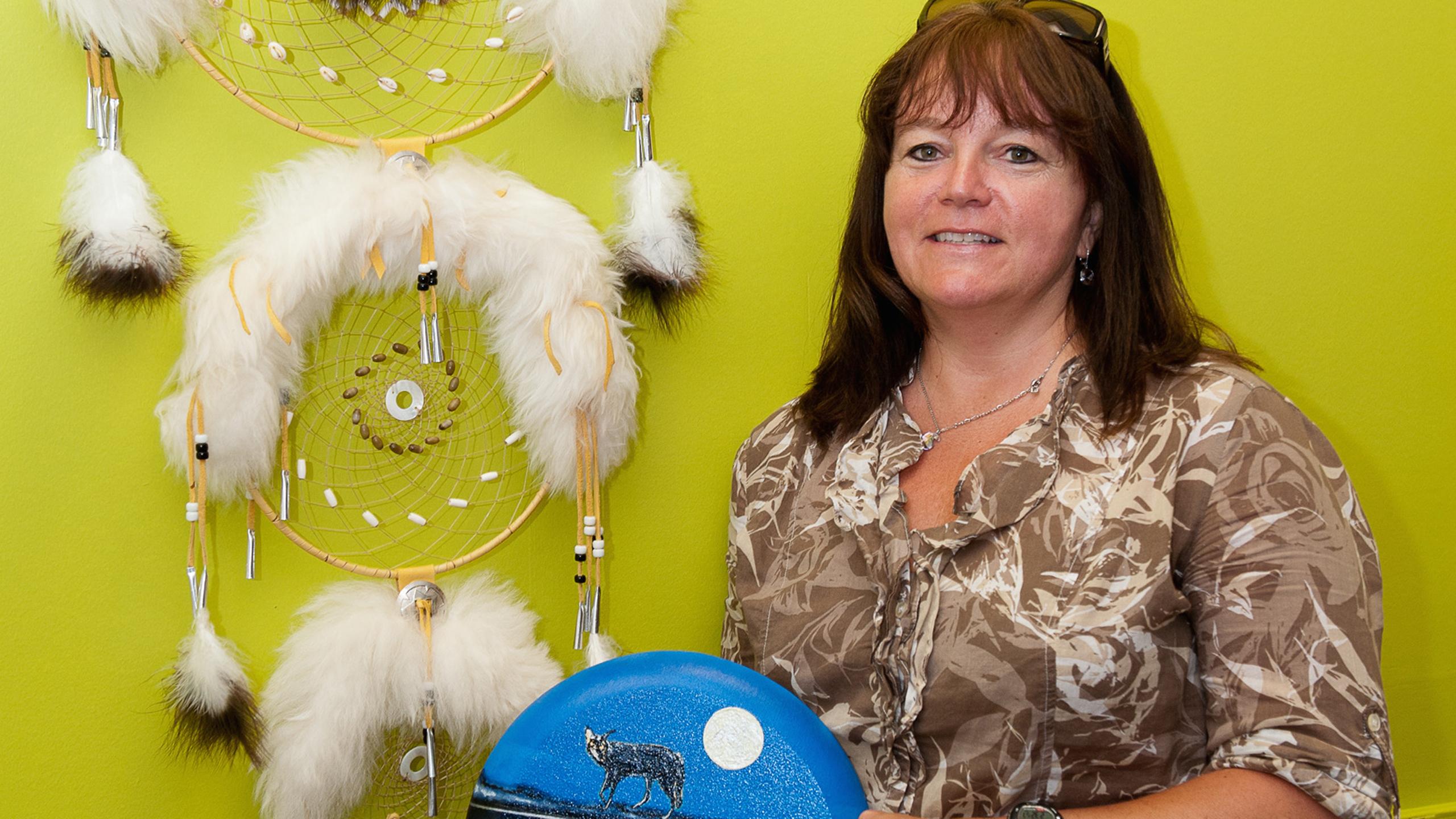By Kiernan Green
Lynn Lavallée’s life has made her no stranger to the barriers that exist for Indigenous folks both inside and outside academia.
Two years ago an Indigenous friend of hers, who had grown up with her in Toronto’s Regent Park, hosted discussion circles with other Indigenous men at Ryerson University.
Lavallée described her friend as a “big dude” and he hosted the men in real heart-to-heart conversation—conversations crucial to bringing about the truth of situations that exist for Indigenous people in the country.
“People would call security,” said Lavallée. “I’d have to get on the phone and say, “‘No, they’re allowed to be in that room, everything’s okay.'”
That’s only one instance that colours Lavallée’s perspective on Indigenous reconciliation—a term she said has almost become a “distraction” against real improvement for Indigenous students and staff at universities across Canada.
Lavallée is an Anishnaabek Métis born in Sudbury, Ontario, and raised in Regent Park.
She returned to Ryerson as the new strategic lead for Indigenous resurgence in the Faculty of Community Services. Previously, she was the first vice-provost of Indigenous engagement at the University of Manitoba.
“I became involved in [Ryerson] because…we can’t simply critique it. We have to become part of it to make a change,” she said.
Lavallée said she resigned from the University of Manitoba because she felt like she couldn’t satisfy the needs of Indigenous community members and the desires of the university simultaneously.
“It was starting to compromise my i
Lavallée, who is conflicted by the idea of reconciliation, said her 12 years at Ryerson were “a hard road,” but her presence here was urgent.
While Canadian universities and the federal government are focused on “report cards to see how well they’re doing with respect to reconciliation,” Lynn asked what is happening to Indigenous students.
“They’re dropping out. They’re not being supported financially,” she said. “That’s where reconciliation is a distraction. We need to support Indigenous faculty and staff, and we need to do it now.”
Lavallée said instead of “report cards” to track progress she would rather have a resurgence of the Indigenous community, brought about by the support of Indigenous cultures, ceremony, research, activism, youth and elders.
We need to support Indigenous faculty and staff, and we need to do it now
Resurgence is “about recognizing [Ryerson] as a colonial institution and moving on from there. It’s supporting Indigenous people within the academy,” she said.
Resurgence is “not assisting non-Indigenous peoples to learn about Indigenous people” although that is important too, said Lavallée.
She has no shortage of plans to bring about Indigenous resurgence through her new role at Ryerson.
Foremost, Lavallée sees a great need to increase the number of Indigenous students and staff. She said she plans to take a critical look at policies within the Faculty of Community Services which prevent inclusion.
An example of this is the practice of full-time professors utilizing unpaid guest lecturers. Indigenous folks might be “teaching the content, but they don’t have the job.”
Another area of improvement is outreach, said Lavallée. Although the University of Manitoba had its own apparent problems with anti-Indigenous racism, she said their outreach to Indigenous students could be a model for Ryerson’s.
The University of Manitoba’s Engineering Access Program (ENGAP), for example, provides extra academic support to Indigenous students who “may not have had access to the resources to obtain the prerequisites required to get into, prepare for, and succeed in engineering,” according the programs website.
Lavallée said she also intends to launch a speaker’s series surrounding Indigenous resurgence.
All of this can combat the recent wave of Indigenous resignations and firings across Canadian universities, she said.
Angelique EagleWoman—the first female Indigenous Dean of a Canadian law school—is suing Lakehead University for alleged racial discrimination and forced
Lavallée also mentioned Sandra Muse Isaacs, who left her position as a professor at Saint Mary’s University in Halifax, N.S. to protest the school’s failure to “i
Ryerson is seen as a place where social justice can happen—where activism can happen
Elder Marilyn Buffalo was let go from the University of Alberta, one month after being offered a two year contract with the school, she said.
Unlike in Winnipeg (which Lavallée said can be a “hard sell” given it’s history of anti-Indigenous racism), Ryerson is a more attractive spot to Indigenous scholars.
“There’s definitely a lot of support at [Ryerson]. I think there are so many [non-Indigenous] people who want to see Indigenous people succeed here,” she said, mentioning President Lachemi and Provost Michael Benarroch.
“Ryerson is seen as a place where social justice can happen—where activism can happen.” The university should be “building upon that, by really putting forward an agenda of Indigenous resurgence.”













Leave a Reply